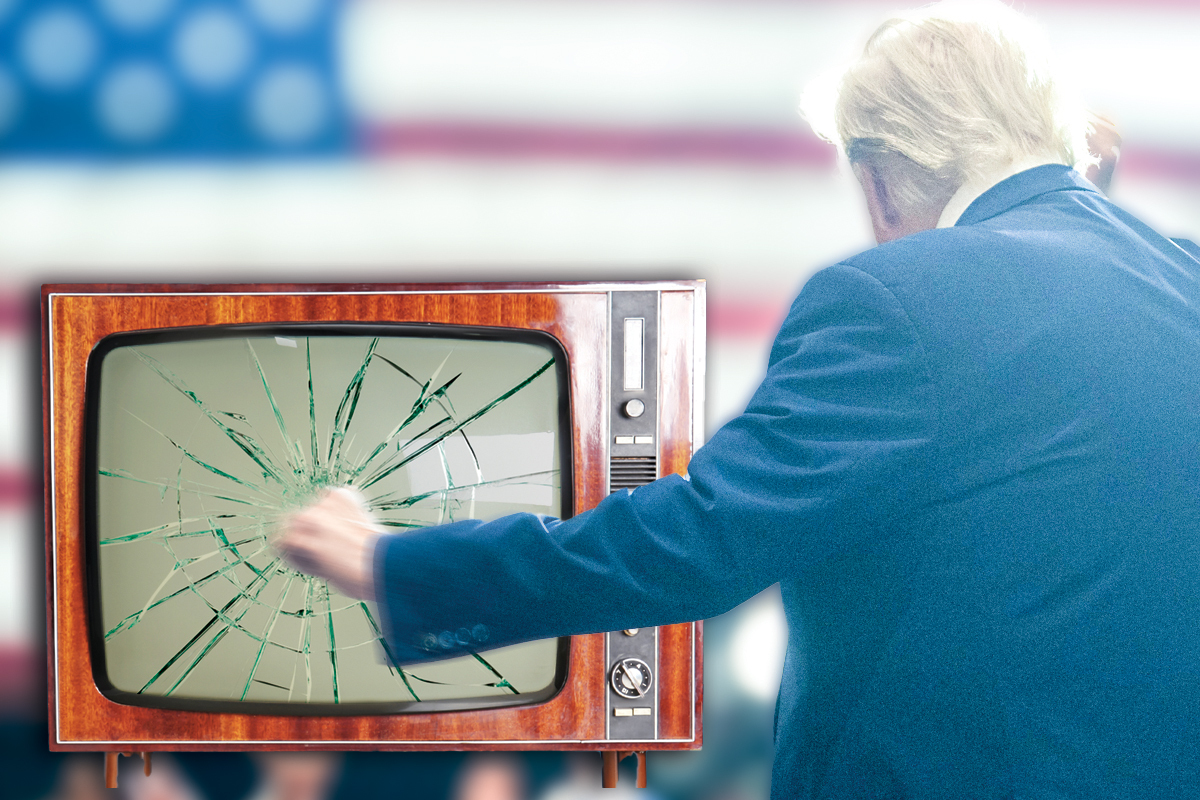In true Trumpian fashion, on 5 May Trump posted on his Truth Social platform that he was “instituting a 100% Tariff on any and all Movies coming into our Country that are produced in Foreign Lands. WE WANT MOVIES MADE IN AMERICA, AGAIN!”
Since the news has been announced, it has raised a feeling of exasperation and further anxiety to the UK’s 195,000 film workers, who daily live a precarious existence and have been through enough turmoil over the past few years – from the covid pandemic, inflation, strikes, and a slump.
Hannah, a special effects worker, told The Communist:
“It was great during the 2010s, the government gave lots of subsidies and there were lots of productions going on. Then the pandemic happened, the strikes, and things slowed up since then.”
Details about the tariffs remain sparse, with many questions still over what a tariff on the film industry would even look like. Would it be levied if a certain percentage of a film is filmed outside the USA? Would that cover where the edit process took place? Would it cover documentaries, streaming, or linear TV films?
Beleaguered industry
Whatever is eventually decided, it has served to expose the domination of Hollywood over the UK film industry.
Shepperton Studios for example is the largest film studio in Europe – with US producers like Amazon and Netflix taking up 31 purpose built stages. Sky’s Elstree studios has been built and owned by US conglomerate Comcast. And Warner Bros are currently expanding their studios at Leavesden, Hertfordshire by 400,000 square feet.
This has led to many of the big Hollywood blockbuster films of recent years like Mickey 17, Barbie, and Wicked all being produced in Britain – with the help of vast subsidies from the UK government.
In turn, the UK has developed extremely specialised freelance workers in the film and TV industry covering special effects, edit suites, sound engineering, animation, make-up, and costume design.
Slapping tariffs on the output of these vast long-term investments by US conglomerates – reliant upon the UK’s specialised workforce – has the potential to strike disaster for all involved.
US Tariffs could potentially deal a knockout blow to the UK film & TV industry 🎞️
The government must move swiftly to defend this sector, and the freelancers that power it, as a matter of essential national economic interest. pic.twitter.com/ydGc7abesq
— Bectu (@bectu) May 6, 2025
The UK film and TV industry, although currently beleaguered, has been one of the few areas of the British economy to thrive in recent decades; but in an epoch of trade wars and protectionism, this has the potential to turn into its opposite.
Now, Starmer is left with no alternative but to go out and beg President Trump not to implement tariffs, without much to bargain with.
Ferment and anger
Film and TV workers throughout the past five years have learnt many hard lessons through experience, with tariffs potentially set to be another. Ferment and anger are widespread amongst this large workforce.
Already, the industry’s self-perpetuating alienation and precarity has been too much to bear for many, with thousands having left the industry.
Those who remain will be left questioning not just what is to be done about this or that policy – this or that minor reform – but the entire system itself.






